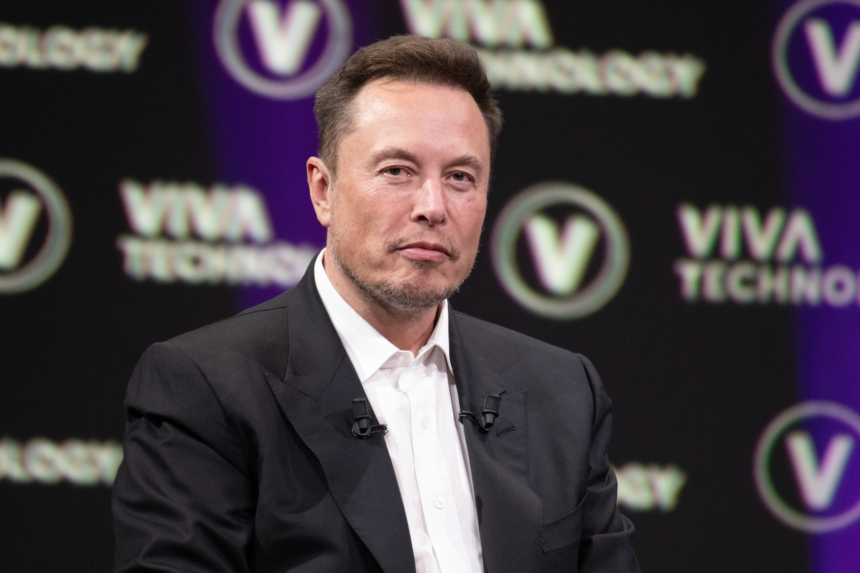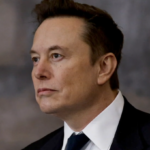Elon Musk, the billionaire entrepreneur behind Tesla, SpaceX, and multiple other ventures, has seen his net worth dip below $400 billion for the first time in 2025. As of February 11, 2025, Musk’s fortune is estimated at $378.8 billion, a decline of $12.5 billion in just one day. The primary reason behind this drop is the recent turbulence in Tesla’s stock price, which fell by 3% on Monday, followed by another 4% dip on Tuesday morning. Investors and analysts are now evaluating whether this is a temporary setback or the beginning of a larger trend in Musk’s financial empire.
Tesla Stock Takes a Hit
Tesla has been a major driver of Musk’s wealth, contributing nearly one-third of his total net worth. The recent stock decline is a significant factor in his wealth reduction. Previously, Tesla’s shares had surged following the re-election of former U.S. President Donald Trump, largely due to Musk’s $277 million campaign contribution and his appointment as a key advisor for reducing federal spending. However, investor enthusiasm began to wane as uncertainty loomed over Tesla’s ability to meet its ambitious targets for autonomous driving technology and its much-anticipated robotaxi service.
Despite Musk’s influence in shaping policies favorable to Tesla, investors are growing cautious about the company’s future amid increasing competition in the electric vehicle (EV) market. Tesla faces growing challenges from Chinese automakers such as BYD, as well as traditional auto giants like Ford and General Motors, which are rapidly expanding their EV production. The overall EV sector has also been impacted by fluctuating battery supply costs and consumer demand concerns, further adding pressure on Tesla’s stock performance.
SpaceX’s Role in Musk’s Wealth
While Tesla remains Musk’s biggest asset, SpaceX is another crucial component of his fortune. The private aerospace company is currently valued at nearly $350 billion, and Musk owns a 42% stake in it. SpaceX has continued to make significant strides in commercial space travel, satellite deployments, and deep-space exploration projects. The company’s recent missions, including successful Starship tests and expanded Starlink satellite services, have been positive highlights.
However, the uncertainty surrounding regulatory approvals for SpaceX’s next-generation projects and potential delays in NASA contracts have left some investors cautious. While SpaceX’s valuation has remained stable, its contribution to Musk’s net worth fluctuates based on funding rounds and investor sentiment in the aerospace sector.
The Rise and Fall of Musk’s Fortune
It wasn’t long ago that Elon Musk’s net worth peaked at an astonishing $486 billion in December 2024. This meteoric rise was fueled by a rally in Tesla’s stock, record-breaking vehicle deliveries, and strong financial performance across his ventures. However, wealth fluctuations are nothing new for Musk, who has often seen his fortune rise and fall based on market conditions and investor behavior.
One major factor in his wealth fluctuations is his compensation structure at Tesla. Musk does not take a conventional salary but instead receives stock-based rewards linked to Tesla’s performance. When Tesla’s valuation soars, Musk’s net worth skyrockets. Conversely, when the company’s stock takes a hit, his fortune follows suit.
Regulatory and Economic Challenges
Musk’s businesses are also facing increased scrutiny from regulators in multiple countries. The U.S. Securities and Exchange Commission (SEC) continues to monitor Tesla’s financial disclosures, particularly concerning its autonomous driving claims. Additionally, the Biden administration’s stance on environmental regulations and labor policies could impact Tesla’s operations.
Internationally, Tesla has faced challenges in China, where government restrictions and shifting EV incentives have created an unpredictable market. In Europe, competition is intensifying as local automakers roll out competitive EV models, challenging Tesla’s dominance.
Moreover, the broader stock market has experienced volatility due to global economic uncertainties, including interest rate changes, inflation concerns, and geopolitical tensions. These macroeconomic factors have influenced investor confidence in high-growth tech stocks, including Tesla.
Musk Still Holds the Top Spot
Despite the recent dip, Elon Musk remains the world’s richest individual. According to the Bloomberg Billionaires Index, he still holds a net worth of approximately $379 billion, keeping him ahead of rivals such as Amazon’s Jeff Bezos and LVMH’s Bernard Arnault.
Musk’s ability to stay at the top of the wealth rankings is a testament to his diverse portfolio and ongoing innovation across multiple industries. From artificial intelligence and EVs to space exploration and social media (with X, formerly Twitter), Musk continues to be one of the most influential figures in technology and business.
What’s Next for Musk and His Wealth?
The big question now is whether Musk’s net worth will rebound or continue to slide. Investors will closely watch Tesla’s next earnings report, production numbers, and any updates on autonomous driving advancements. If Tesla can successfully deliver on its promises, stock prices may recover, pushing Musk’s wealth higher once again.
Similarly, SpaceX’s continued success with satellite launches, Starship missions, and commercial partnerships could further bolster Musk’s fortune. Additionally, his investments in AI and robotics, including Tesla’s Optimus humanoid robot, may play a crucial role in shaping the future of his business empire.
Conclusion
Elon Musk’s recent net worth decline is a reminder of the volatility that comes with being a billionaire heavily reliant on stock performance. While Tesla’s recent stock dip has contributed to the fall, Musk’s diversified portfolio in aerospace, AI, and EVs keeps him at the forefront of technological innovation. Whether his fortune rebounds or continues to fluctuate, Musk remains a dominant force in global business, shaping industries and markets with his bold vision and disruptive strategies.
As investors and analysts keep a close eye on Tesla’s future, one thing is certain—Elon Musk’s financial journey is far from predictable, and his next big move could once again reshape the global economy.






